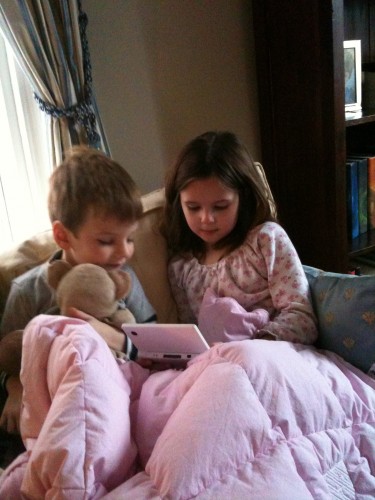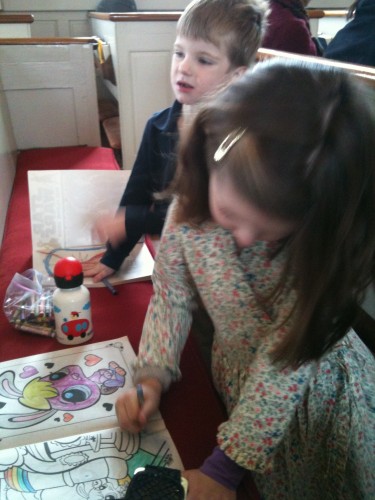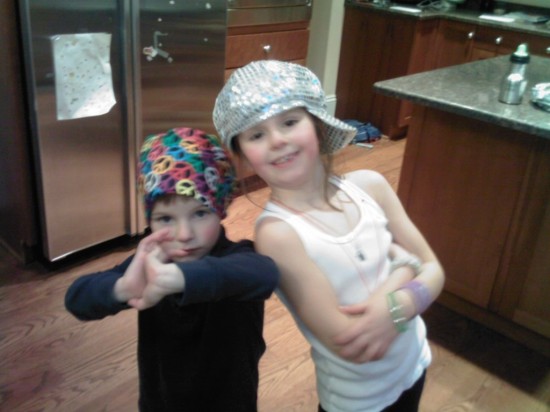I was reading a newly-discovered blog yesterday called Catching Days. Cynthia Newberry Martin was writing about Devotion, a book I also adored. She cites specifically Dani Shapiro’s passage on memory, which was one of my favorites as well. I was grateful for this prompt to return to the elegant pages of the memoir, and I thought about memory all day.
There are two passages that strike me from Devotion‘s section 54. The first, Cynthia also quotes:
Why do we remember the particular things we do? Great pain certainly carves its own neurological paths. But why random, ordinary moments?
I have written before about how some of the memories I recall most vividly are of “random, ordinary” moments, whose eventual power I would never have known as I was living them. I am fascinated by this particular alchemy: why is it that we recall what we do? Certainly my mind has power to shape our memory in ways beyond my conscious awareness: this is at work, I think, in the way my brain seems to airbrush over certain incredibly difficult times, smoothing the specific contours of grief and pain into a uniform, though unmistakably sad memory. The years at Exeter, for example, are for me a blur of snow, cold, running, and my tiny dorm room. Very few specific memories endure. The same is true of the months after Grace’s birth, as I grappled with my post-partum depression.
This makes me think of the oft-quoted line from Ann Beattie’s gorgeous short story, Snow: “people forget years and remember moments.” As curious to me as why certain moments become eternal, sturdy parts of our memory is how rarely we can know as we live our lives which specific experiences will be elevated to this pantheon. Which moments endure? Why? What message is our spirit sending to us in the patchwork of our lives that it preserves with glowing, brilliant detail?
I randomly remembered an essay I’d written during freshman year on To The Lighthouse (why this memory? why today?) which addressed something similar. I opened it up tonight and, amidst an odd encounter with my 18 year old self, found this line:
“Mrs. Ramsay illustrates what most human lives are like – a long thread of day-to-day banality and an occasional, vivid gemstone of insight or memory. It is these memories, these moments, that make life interesting and valid; we live from one of these special times and experiences to another; while the stuff of life may be the mundane, it is the rare moments for which we truly live.”
How is it that we can’t recognize the gemstones as we live them? Certainly there are hours, days, months of our lives that feel more alive than others. Some periods of my life feel like going hand over hand through a swarm of gray days, clinging to the few moments of emotion or meaning that rise through the fog. Other periods are like standing under a waterfall of feeling, unable to take it all in, pounded with emotion and sentiment, so awake and receptive I feel either pain or a gradual, defensive numbness. Still, we can’t know which will be the memories that really endure, that lodge in our minds and stay with us for the duration.
The second passage about memory from Devotion comes at the end of section 54:
I had experienced my own memory as a living thing, a palpable presence in my body. I had felt my past unfurl inside me as if it had a mind of its own.
I was actually thinking about something like this before I reread the section and found these lines; again, Dani puts into exquisite words the bumbling and humble thoughts of my heart. I was thinking about some of the most cherished memories, the ones whose remembered details stud them like the jewels that cover a Faberge egg, who glitter most brightly in my mind. Some of these take on an odd power, functioning almost like a lens through which I see my life. Retrospectively, yes: the memory of that time in my life is refracted through that specific, salient moment.
But also, perhaps more oddly, this works prospectively. There are certain moments who seem to have, in retrospect, informed the shape of the rest of my life. I can’t know if this happened in real time or in retrospect. I remember sitting at the foot of my bed, holding 5-day-old Grace, dripping tears onto her newborn head and answering earnestly the question of “what are you looking forward to?” with “when she goes to college.” This has taken on such power as a defining moment of that time in my life, and of my motherhood in general. But did that happen then, or only as I remember it and the (admittedly blurry) months around it? I don’t know. I have the phrase “freight of memory” in my mind, but in truth this is more like memory pushing something formative in front of it, rather than pulling it behind it.
In this way our past unfurls inside of us, cohabiting our present. The past and the present echo inside of us, both creating the music of now and anticipating that of tomorrow. We cannot understand the mystery of memory; my goal is merely to accept the messages it offers. To honor the things my soul seems to hold dear, as represented by which memories bob up out of the morass to be the ones I recall with blinding brightness. To remain open to the ordinary moments, as I can never know which will become those to which I return again and again, rubbing them like a touchstone in my pocket. It strikes me that this trick of our mind is, perhaps, just another way of acknowledging the grandeur and beauty of the most mundane moments in our lives.


 Finally they worked up enough energy to sit up. Whit watched Grace playing on her DSI. He was enraptured. She was sufficiently softened up by his avid worship that she even let him play a few games. Trust me, this is definitely not the norm. Methinks Whit is figuring out how to manipulate his sister just like he plays the rest of us. It’s only taken him this long with her because she’s just a little sharper than the rest of the family.
Finally they worked up enough energy to sit up. Whit watched Grace playing on her DSI. He was enraptured. She was sufficiently softened up by his avid worship that she even let him play a few games. Trust me, this is definitely not the norm. Methinks Whit is figuring out how to manipulate his sister just like he plays the rest of us. It’s only taken him this long with her because she’s just a little sharper than the rest of the family.
 Grace went to a birthday party in the afternoon and Whit curled up with Star Wars and I curled up with bills to pay and thank you notes to write. Relaxation and fun all around! The party Grace went to was hip-hop themed, so she came home with this hat and a bunch of new moves which she promptly taught Whit.
Grace went to a birthday party in the afternoon and Whit curled up with Star Wars and I curled up with bills to pay and thank you notes to write. Relaxation and fun all around! The party Grace went to was hip-hop themed, so she came home with this hat and a bunch of new moves which she promptly taught Whit.